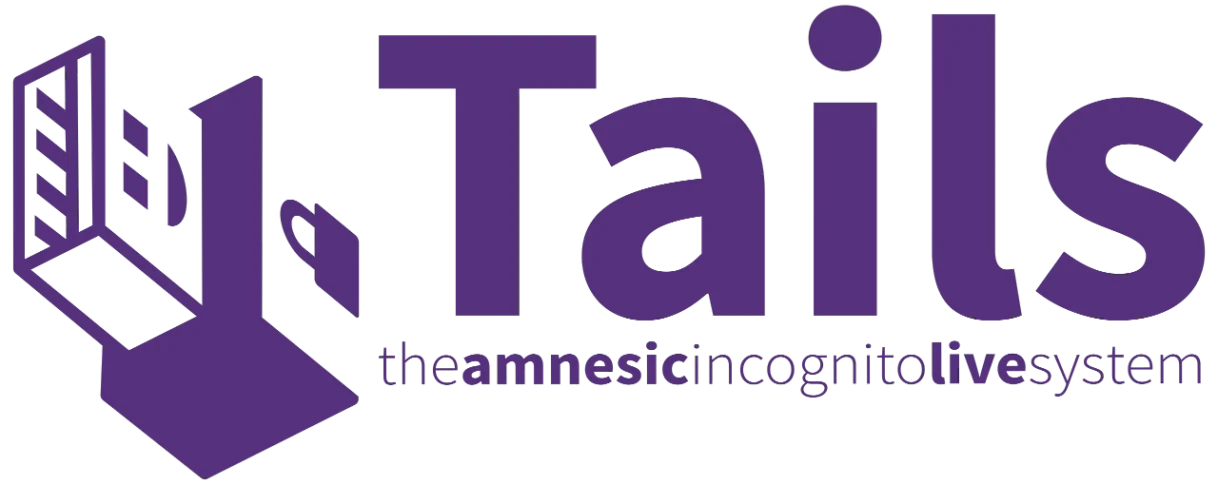Tails (The Amnesic Incognito Live System): A Comprehensive History and Explanation
Introduction: The Purpose of Tails
Tails, short for The Amnesic Incognito Live System, is a security-focused Linux distribution designed to preserve privacy and anonymity. It is intended for use by individuals who need to communicate securely, bypass censorship, or maintain anonymity in their online activities. Tails achieves this by routing all internet traffic through the Tor network, leaving no trace of the user’s activities on the computer. The primary purpose of Tails is to provide a secure and private environment that can be used on almost any computer without leaving any traces behind, making it a critical tool for journalists, activists, and anyone concerned about privacy and surveillance.
Origins: The Birth of Tails
Tails has its roots in the Debian-based live CD known as Incognito, which was developed in 2007 by a security researcher named Julien O. Incognito was created to provide a secure and anonymous operating system that could be run from a CD, leaving no traces on the host machine. However, as the project grew and the need for enhanced privacy tools became more apparent, Incognito merged with another project called Amnesia in 2009, giving rise to Tails.
The merger brought together developers and contributors from both projects, leading to the creation of a more robust and secure system. The name “Tails” was chosen to reflect the system’s focus on privacy and security, with “Amnesic” indicating its ability to leave no trace, and “Incognito” emphasizing its goal of maintaining user anonymity.
Tails was officially released in June 2009, and it quickly gained popularity among privacy-conscious users, particularly those in high-risk environments such as journalists, whistleblowers, and activists operating in oppressive regimes.
Tails and Debian: A Secure Foundation
Tails is based on Debian, one of the most stable and respected Linux distributions. Debian’s strong commitment to free software, security, and reliability makes it an ideal foundation for Tails. By building on Debian, Tails benefits from Debian’s extensive package repositories, robust security practices, and well-maintained infrastructure.
However, Tails is more than just a customized version of Debian. It includes several additional features and tools specifically designed to enhance privacy and anonymity, making it a unique distribution with a specific focus on security.
Key Features of Tails: Privacy, Anonymity, and Security
Tails is equipped with a wide range of features designed to protect user privacy, ensure anonymity, and maintain security. Some of the key features include:
- Tor Integration: Tails routes all internet traffic through the Tor network, which anonymizes the user’s connection by bouncing it through a series of volunteer-operated servers around the world. This makes it difficult for anyone to trace the user’s activities back to their real-world identity.
- Amnesic Mode: Tails is designed to leave no trace on the host computer. It runs entirely from a USB stick or DVD, and all data is stored in RAM, which is wiped when the system is shut down. This means that no traces of the user’s activities, such as files or browsing history, are left behind on the computer.
- Encrypted Storage: Tails includes tools like LUKS and GNOME Disks for creating encrypted storage volumes. This allows users to securely store sensitive data, which can only be accessed with the correct passphrase.
- Pre-installed Security Tools: Tails comes with a variety of pre-installed tools for secure communication and file management, including:
- Tor Browser: A version of Mozilla Firefox modified for privacy and security, pre-configured to use the Tor network.
- Thunderbird with Enigmail: A secure email client with support for encrypted emails using GnuPG.
- KeePassXC: A password manager that securely stores passwords and other sensitive information.
- VeraCrypt: A tool for creating and managing encrypted containers.
- MAT (Metadata Anonymization Toolkit): A tool for removing metadata from files to protect privacy.
- Persistent Storage: While Tails is designed to be amnesic, it also offers an option for creating a persistent storage volume on the USB stick. This encrypted volume allows users to save files, settings, and additional software between sessions, without compromising the overall security of the system.
- Secure File Sharing: Tails includes tools like OnionShare, which allows users to securely and anonymously share files using the Tor network. This is particularly useful for whistleblowers and journalists who need to exchange sensitive information without revealing their identity or location.
- Sandboxed Applications: Tails uses AppArmor, a security module that confines applications to a limited set of resources, reducing the risk of exploitation and ensuring that even if an application is compromised, it cannot harm the rest of the system.
These features make Tails one of the most secure and privacy-focused operating systems available, offering a high level of protection for users who require anonymity and security in their digital activities.
The Development Process: Community and Governance
Tails is developed by a global community of volunteers and supported by various organizations that advocate for digital rights and privacy. The project is governed by a set of principles that emphasize transparency, user autonomy, and the importance of free software.
The development process of Tails follows a regular release cycle, with new versions typically released every six weeks. Each release includes updates to the base system, security patches, and new features or improvements. The Tails development team works closely with the Debian community to ensure that Tails remains secure, stable, and up-to-date.
Tails is an open-source project, which means that anyone can contribute to its development, report bugs, or suggest improvements. The project maintains an active mailing list, forum, and issue tracker where contributors and users can collaborate and discuss various aspects of the distribution.
Security in Tails: A Strong Focus on Protection
Security is at the core of Tails’ design, and the project employs a variety of measures to protect users from threats. Some of the key security practices in Tails include:
- Regular Security Audits: Tails undergoes regular security audits by independent security researchers and organizations to identify and fix potential vulnerabilities.
- Upstream Security: Tails inherits the security practices of Debian, including its rigorous testing and patching process. This ensures that Tails benefits from the broader Debian community’s efforts to maintain a secure operating system.
- Automatic Updates: Tails includes an automatic update system that ensures users are always running the latest version with the most recent security patches. This is crucial for protecting against newly discovered vulnerabilities.
- Cryptographic Integrity Verification: Tails uses cryptographic signatures to verify the integrity of its software and updates. This prevents attackers from tampering with the distribution or delivering malicious updates.
- Isolation of Applications: Tails isolates applications using sandboxing techniques to prevent any single compromised application from affecting the entire system.
These security measures make Tails a highly trusted operating system for individuals who need to protect their privacy and security in hostile environments.
Tails and the Tor Project: A Symbiotic Relationship
Tails relies heavily on the Tor network to provide anonymity and privacy for its users. The Tor Project and Tails have a symbiotic relationship, with each project benefiting from the other’s contributions. Tails uses the Tor network to anonymize internet traffic, while the Tor Project benefits from Tails as a distribution platform that makes Tor easily accessible to users.
The close integration of Tor into Tails ensures that users have a seamless and secure experience, with all internet traffic automatically routed through the Tor network without requiring manual configuration. This tight integration has made Tails one of the most effective tools for protecting online anonymity.
Tails in the Real World: Use Cases and Impact
Tails has had a significant impact on the world of digital privacy and security, becoming an essential tool for a wide range of users, including:
- Journalists: Tails is widely used by journalists who need to protect their sources and communicate securely in environments where press freedom is limited. The ability to run Tails from a USB stick and leave no traces makes it ideal for reporting in high-risk situations.
- Whistleblowers: Individuals who need to disclose sensitive information without revealing their identity, such as whistleblowers, rely on Tails to protect their communications and data. Tails has been used in high-profile cases where privacy and security were paramount.
- Activists: Human rights activists and political dissidents in oppressive regimes use Tails to bypass censorship, communicate securely, and organize without risking their safety. Tails’ anonymity features make it a critical tool for protecting activists’ identities and actions.
- Privacy Enthusiasts: For users who are concerned about online surveillance and data privacy, Tails offers a way to browse the web, communicate, and manage data without leaving a digital footprint. This makes it an attractive option for those who value their privacy.
Tails has also been recognized and supported by various organizations that advocate for digital rights and freedom of expression, further highlighting its importance in the fight for online privacy.
Challenges and Criticisms: Balancing Security and Usability
While Tails is highly regarded for its security and privacy features, it is not without its challenges and criticisms. Some of the common issues include:
- Learning Curve: Tails is designed with security in mind, which can make it challenging for less tech-savvy users to use effectively. The need to understand concepts like Tor, encryption, and secure communication can be daunting for new users.
- Performance: Running Tails from a USB stick or DVD can result in slower performance compared to a fully installed operating system. The amnesic nature of Tails, which stores data in RAM, can also limit the amount of data that can be handled during a session.
- Limited Software Availability: While Tails includes a wide range of pre-installed tools, its focus on security means that some common applications are not available, or require additional steps to install. Users looking for a broader range of software may find Tails limiting.
- Dependence on Tor: While Tor is a powerful tool for anonymity, it is not foolproof. Users must be aware of the limitations of Tor and take additional precautions to protect their privacy, such as avoiding the use of personal accounts and being cautious with the data they share.
Despite these challenges, Tails remains one of the most trusted and effective tools for maintaining privacy and anonymity, particularly in high-risk situations.
The Future of Tails: Evolving with the Threat Landscape
The future of Tails will be shaped by the evolving landscape of digital threats and the growing demand for privacy tools. As governments, corporations, and malicious actors continue to develop more sophisticated methods of surveillance and censorship, Tails will need to adapt to provide users with the protection they need.
Some of the potential areas of development for Tails include:
- Enhanced Usability: Efforts to make Tails more user-friendly, without compromising security, could help to broaden its adoption among less technical users.
- Integration with Emerging Technologies: As new privacy tools and technologies emerge, such as decentralized networks and advanced encryption methods, Tails may integrate these into its platform to provide even greater protection.
- Continued Collaboration: Ongoing collaboration with projects like the Tor Project and other privacy-focused initiatives will be essential for keeping Tails at the forefront of digital privacy and security.
- Mobile and Cloud Solutions: With the increasing use of mobile devices and cloud services, there may be opportunities for Tails to expand its offerings to include secure, privacy-focused solutions for these platforms.
Conclusion: The Legacy and Impact of Tails
Tails has established itself as a critical tool for protecting privacy and anonymity in the digital age. Its unique combination of security features, anonymity tools, and an amnesic operating environment has made it indispensable for journalists, activists, whistleblowers, and privacy-conscious users worldwide.
Built on the solid foundation of Debian, Tails continues to evolve to meet the challenges of a rapidly changing digital landscape. As the demand for privacy and security tools grows, Tails will remain at the forefront, providing users with the tools they need to protect their identities and communicate securely.
The legacy of Tails is one of empowerment—empowering individuals to take control of their privacy, protect their freedoms, and resist censorship and surveillance. As digital threats continue to evolve, Tails will undoubtedly play a crucial role in the ongoing fight for online privacy and security.
Appendix I: Edward Snowden

Edward Snowden and His Advocacy for Tails OS: A Modern Approach to Privacy
Edward Snowden, a former National Security Agency (NSA) contractor turned whistleblower, is one of the most well-known figures in the global discourse on privacy, surveillance, and government transparency. Snowden gained international attention in 2013 when he leaked classified information revealing the extent of global surveillance programs run by the NSA and its allies. These revelations sparked widespread debate on the balance between national security and individual privacy rights, profoundly influencing public opinion and policy discussions around the world.
In addition to his whistleblowing activities, Snowden has been a vocal advocate for digital privacy and the use of tools that protect individuals from unwarranted surveillance. Among these tools is Tails OS, a security-focused operating system designed to protect user privacy and anonymity. Tails, which stands for “The Amnesic Incognito Live System,” is a Linux-based operating system that can be run from a USB drive or DVD without leaving any trace on the host computer. This feature makes it an ideal tool for journalists, activists, and anyone concerned with maintaining their privacy in the digital age.
Snowden’s use and endorsement of Tails OS underscore his commitment to privacy and his belief in the importance of accessible tools that empower individuals to protect themselves from intrusive surveillance. By using Tails OS, Snowden was able to communicate securely with journalists during the period leading up to his disclosure of classified documents. His advocacy for Tails OS continues to highlight the importance of digital tools that prioritize user security and privacy, especially in a world where surveillance technologies are becoming increasingly pervasive.
Tails OS is not just a technical solution but a symbol of resistance against unauthorized state surveillance. Snowden’s promotion of such tools has helped raise awareness about the need for robust privacy protections in an era where digital footprints can be easily traced and exploited by governments and corporations alike.
Edward Snowden’s legacy is not only defined by his whistleblowing but also by his ongoing efforts to promote digital privacy through the use of secure technologies like Tails OS. His advocacy serves as a reminder of the importance of protecting individual freedoms in a connected world where privacy is often under threat.





